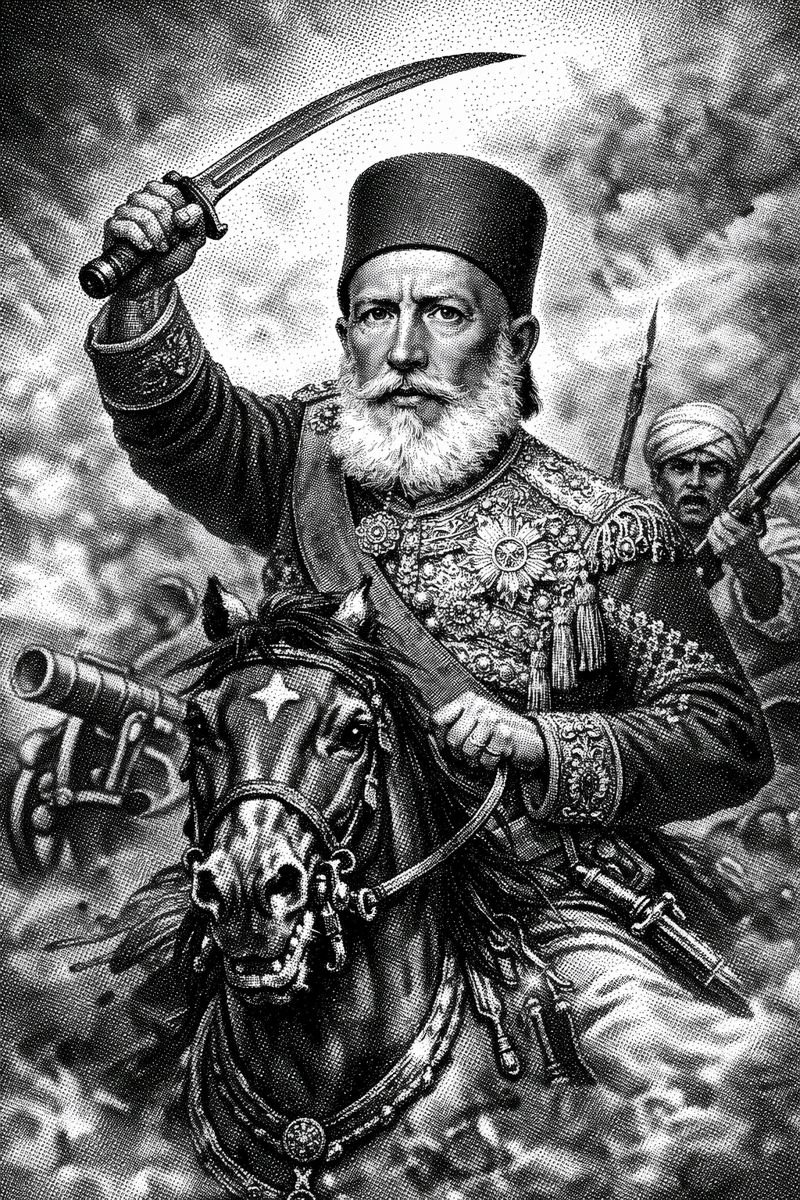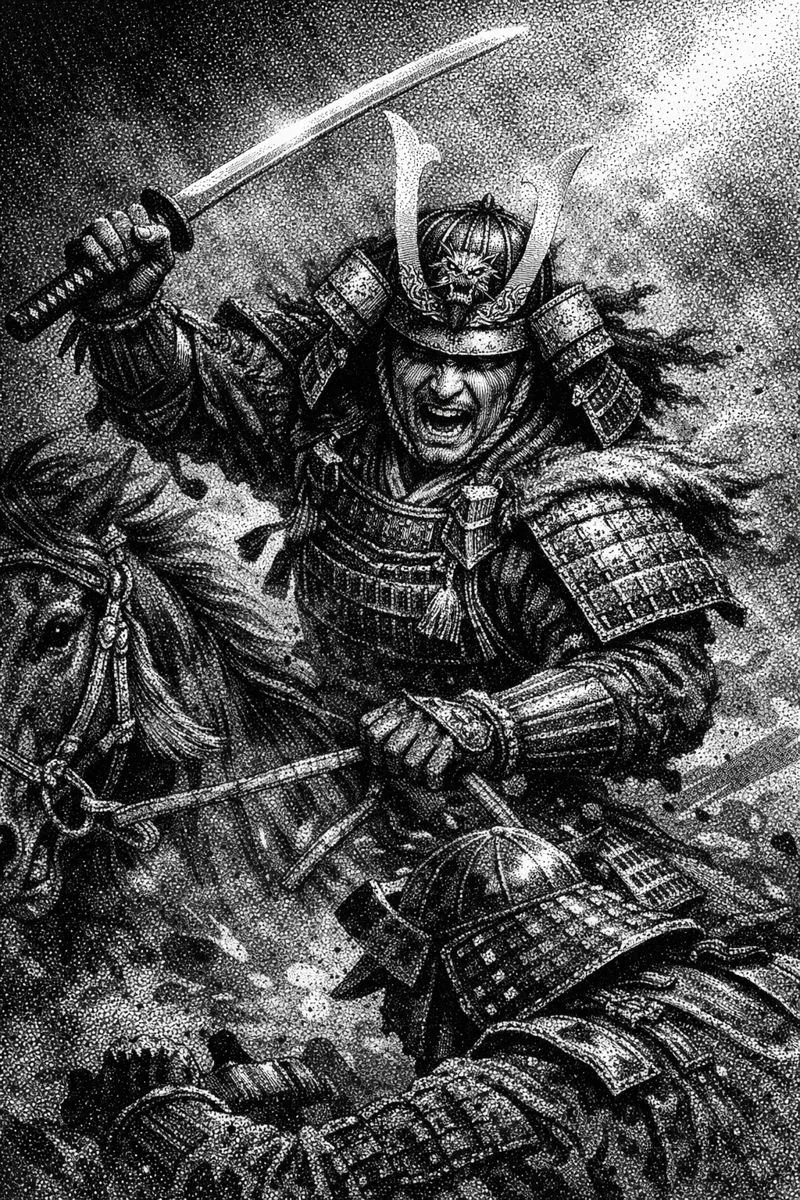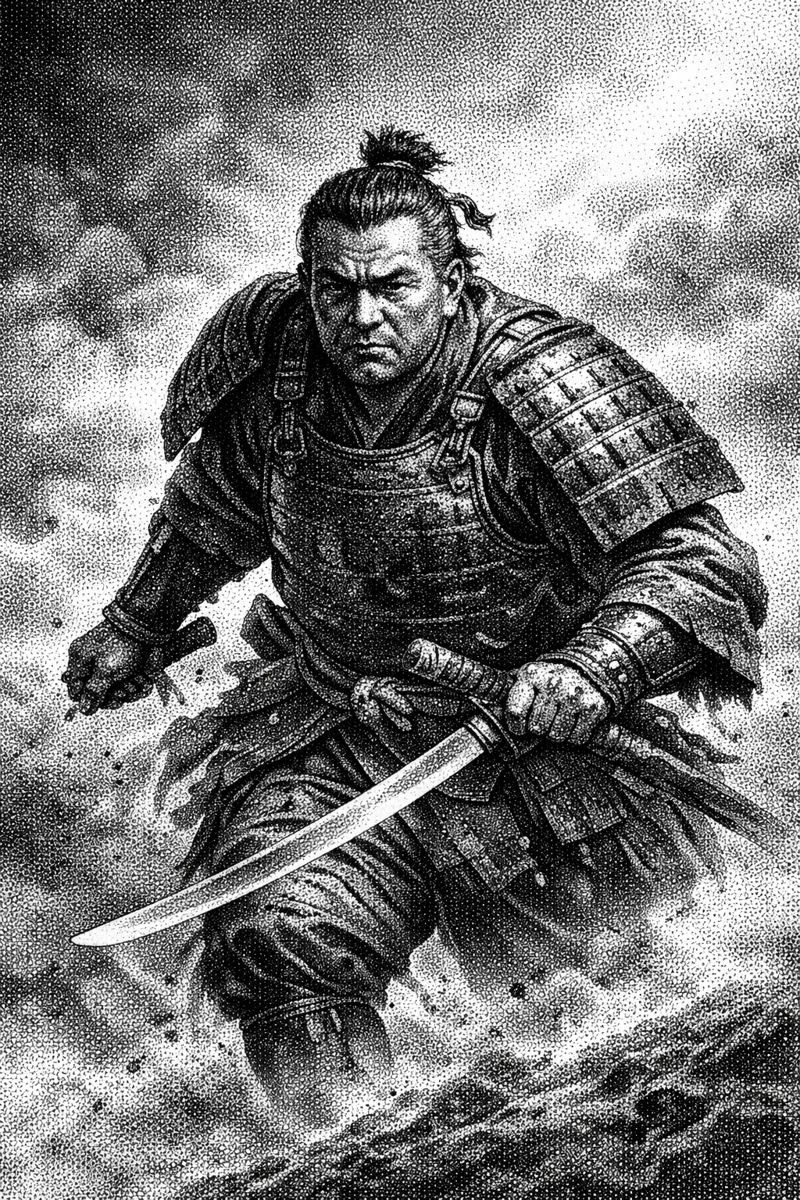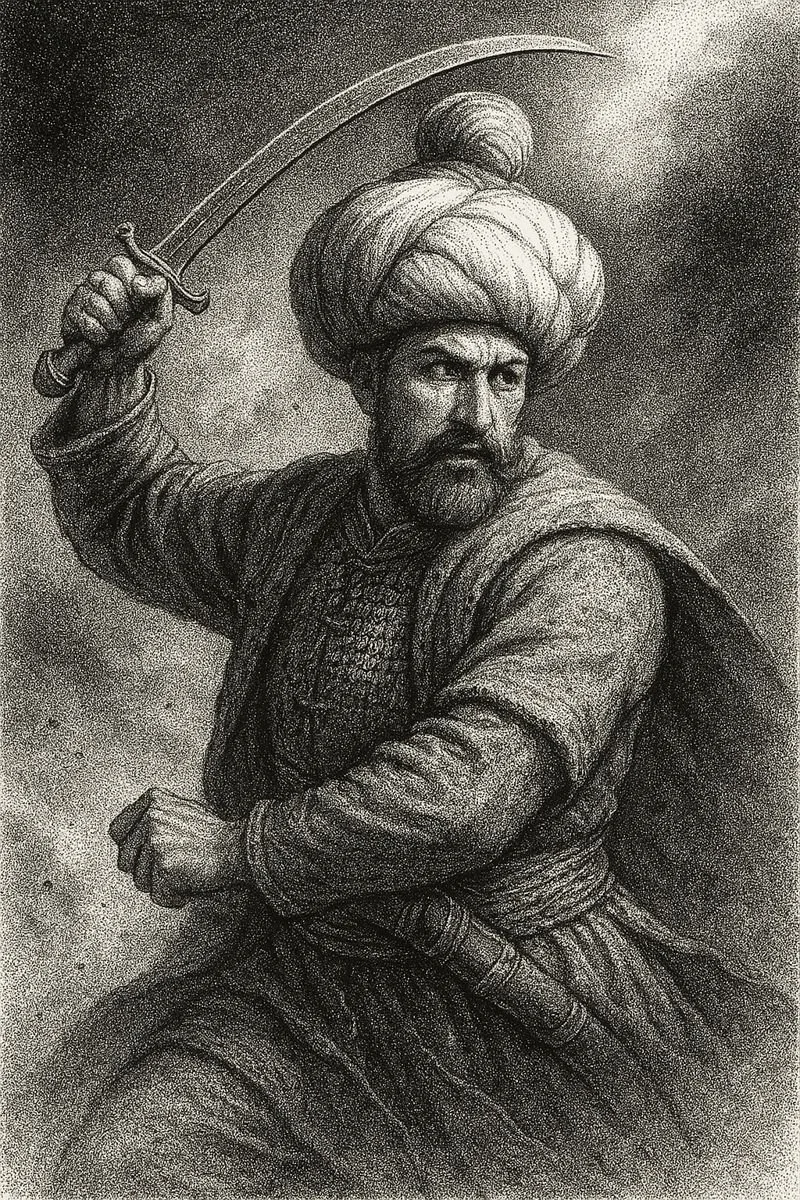Sonni Ali
(c. 1442–1492)
Conqueror-King of the Songhai Empire; river-war tactician, cavalry reformer, and the most feared empire-builder of 15th-century West Africa.
“History always honors the conqueror. It just never asks what he did with the bodies.”
—attributed to a very nervous Timbuktu librarian, 1468
Smoke crawls along the Niger River like an animal searching for something to kill, and behind it rides a man who never met a city he didn’t want either paying tribute or burning politely to ash. Sonni Ali—“Ali Ber,” “The Great,” “The Barbarian,” depending on who’s still alive and willing to write—leans forward in the saddle, eyes narrowed, completely unbothered by the fact that every scholar within a hundred miles is currently screaming into their manuscripts.
It’s 1468 and Timbuktu—the jewel of West Africa, the place where knowledge goes to stretch its legs—is learning that literacy is no match for a man who thinks subtlety is something that happens to other people. Sonni Ali is kicking down the gates of history with cavalry, war canoes, and the cheery indifference of a man who believes the gods personally sharpened his sword.
He’s not entirely wrong.
Early Life: Built Different, Raised Hard
Sonni Ali was born around 1442 into the Sonni dynasty of the Songhai—river people carved out of iron, mud, and the kind of ambition that makes neighbors nervous. He grew up along the Niger in Gao, a place that produced warriors the way other cities produced pottery: endlessly and with minimal supervision.
His early schooling consisted of horseback riding, spear-throwing, dodging rival tribes, and learning that the best way to negotiate is to arrive with overwhelming force and an expression that suggests you’re open to alternatives but none of them are peace.
By the time he inherited the throne in 1464, the Mali Empire was sagging like a drunk on a barstool, and Sonni Ali decided there was no reason not to shove it the rest of the way down. He built the Songhai army into a hybrid land-and-river monster—cavalry that moved like lightning, infantry that didn’t mind getting their hands dirty, and fleets of canoes that could hit like battering rams. He turned warfare into a riverborne demolition derby.
He didn’t want to rule West Africa.
He wanted to dominate it at a brisk, militarily efficient jog.
The Tour of Terrifying Greatness
Sonni Ali’s campaigns are best described as “extroverted.” Between 1464 and 1492 he fought everyone—Tuareg nomads, Mossi horsemen, Fulani warriors, Arab traders, a few unlucky fishermen, and two separate empires that made the mistake of underestimating his love language (violence).
He smashed the Tuareg who’d seized Timbuktu, took Jenne after a siege that lasted seven long years, and then reopened trade routes like a benevolent war-god who just wanted everyone to get along while he personally supervised all the taxes.
The man conquered like he was behind on rent.
Diplomacy? Rare.
Tact? Extinct.
Success? Constant and annoying to anyone not on Team Sonni.
He fought with an almost comic disregard for the odds, the terrain, or the idea that water is supposed to stop armies. When enemies hid behind riverbanks, he built canoes. When they hid in marshes, he waded through them. When they ran into the desert, he simply followed, because Sonni Ali was the kind of man who didn’t believe geography was real.
Most leaders conquer because they must.
Sonni Ali conquered because it looked fun.
Timbuktu, 1468: The Book-Burning Debut Tour
Which brings us back to that morning outside Timbuktu—the day Sonni Ali decided that West Africa’s intellectual capital needed a rude awakening. The scholars expected a polite, ceremonial takeover. What they got was a warlord who treated libraries like suspiciously flammable piles of wood pulp.
The Tuareg who occupied the city folded like wet parchment. Sonni Ali rolled in with cavalry, drums, river flotillas, dust storms, and the theatrical subtlety of a collapsing star. His men looted, burned, trampled, and then looted again just to make sure the looting stuck.
Historians debate how much damage he actually did. Timbuktu’s chroniclers, who lost friends, manuscripts, and probably a few good sandals, insist Sonni Ali was a demon in chainmail. His supporters say it wasn’t so bad. The truth—as usual—sits somewhere between “opportunistic vandalism” and “academic apocalypse.”
But one thing is certain: everyone remembered his name.
The Man, the Myth, the Absolutely Terrifying Army
Sonni Ali didn’t just expand the empire—he re-engineered it into a war machine capable of bullying the desert, the savannah, and the river all in the same campaign season.
His cavalry wasn’t just fast; it moved like gossip.
His infantry wasn’t just loyal; it behaved like rent collectors.
His river fleet wasn’t just effective; it made amphibious assault look cozy.
And then there was Sonni Ali himself, who fought like a man deeply suspicious that someone might steal his empire if he blinked too long. He led from the front, which is admirable unless you're the kind of general who frequently charges into danger like it insulted your horse.
People either adored him or feared him, and usually both before lunch.
Religion, Reform, and the “Maybe He’s a Witch” Problem
Complicating matters, Sonni Ali took a hybrid approach to religion. He publicly identified as Muslim, privately honored traditional Songhai spirits, and occasionally gave the impression that he thought he was a minor deity on his day off.
This annoyed the ulama—the scholarly Muslim elite—who preferred rulers who didn’t mix spiritual traditions like cocktails. They wrote sharp letters. Sonni Ali wrote back with swords. The conversation deteriorated quickly.
Later chroniclers, especially the Islamic scholars of Timbuktu, painted him as a tyrant, a sorcerer, and a man who treated the Five Pillars more like polite suggestions. Was some of this politically motivated? Absolutely. Was some of it deserved? Also absolutely.
The Death of a Monster King (1492): Irony Served Wet
In the end, it wasn’t an enemy army, a betrayal, or a revolt that killed Sonni Ali.
It was water.
The same river that carried his fleets, fed his empire, and obeyed his every strategic whim decided it wanted one last scene in this story. According to tradition, Sonni Ali drowned while crossing the Niger in late 1492, swallowed by the very element he’d mastered.
Of course, some say he was assassinated. Others say he was pulled under by spirits he’d offended. Still others whisper he faked his own death and now works part-time as a river ghost.
But the most poetic answer is usually the truest:
The river got sick of his nonsense and took him.
His successor—Askia Muhammad—promptly launched a smear campaign so thorough it deserves a PhD. He painted Sonni Ali as a heretic, a tyrant, a pagan degenerate, and quite possibly a part-time swamp demon. Scholars loved this. The propaganda practically wrote itself.
Aftermath: From Nightmare to Legend
For the next five centuries, Sonni Ali’s reputation pinballed between “genius empire-builder” and “machete enthusiast.” Oral storytellers cast him as a supernatural warrior who killed enemies with spells, storms, and bad vibes. Historians cast him as the architect of Songhai supremacy. Timbuktu’s survivors cast him as the guy responsible for that one very traumatic Thursday.
Modern portrayals are no less chaotic.
Some call him the West African Napoleon.
Some call him the West African Genghis.
Some call him “that guy who really didn’t like libraries.”
But all agree on this: he changed West Africa forever. He broke the Mali Empire, built the Songhai juggernaut, and left a legend so enormous it requires its own floodplain.
His empire would collapse within a century—burned by Moroccan muskets and court intrigue—but Sonni Ali endures, half hero, half villain, all unstoppable momentum.
He was brilliant. He was brutal. He was a walking natural disaster in chainmail.
And he would have absolutely hated being remembered as “controversial.”
Because Sonni Ali didn’t do nuance.
He did conquest.
And in the end, the river was the only thing he ever failed to conquer.
Warrior Rank #177
Sources
Levtzion, Nehemia. Ancient Ghana and Mali.
Hunwick, John O. Timbuktu and the Songhay Empire.
Fage, J.D. A History of West Africa.
Lange, Dierk. “The Kingdoms of the Niger Bend.”
“The Chronicles of Timbuktu’s Extremely Upset Librarians,” ed. Probably Biased.
The Definitive Guide to Conquering Your Neighbors, Sonni Ali (unpublished).
A canoe-based military manual attributed to “Some Guy Who Definitely Saw Sonni Ali Do Magic.”
















Charles XII of Sweden was a warrior-king who personally led his armies through the Great Northern War, turning early victories into legend through ferocious discipline and reckless courage. His refusal to compromise or retreat ultimately shattered Sweden’s empire, leaving behind a mythic figure admired for bravery and criticized for destroying everything he fought to protect.
Rank - 125